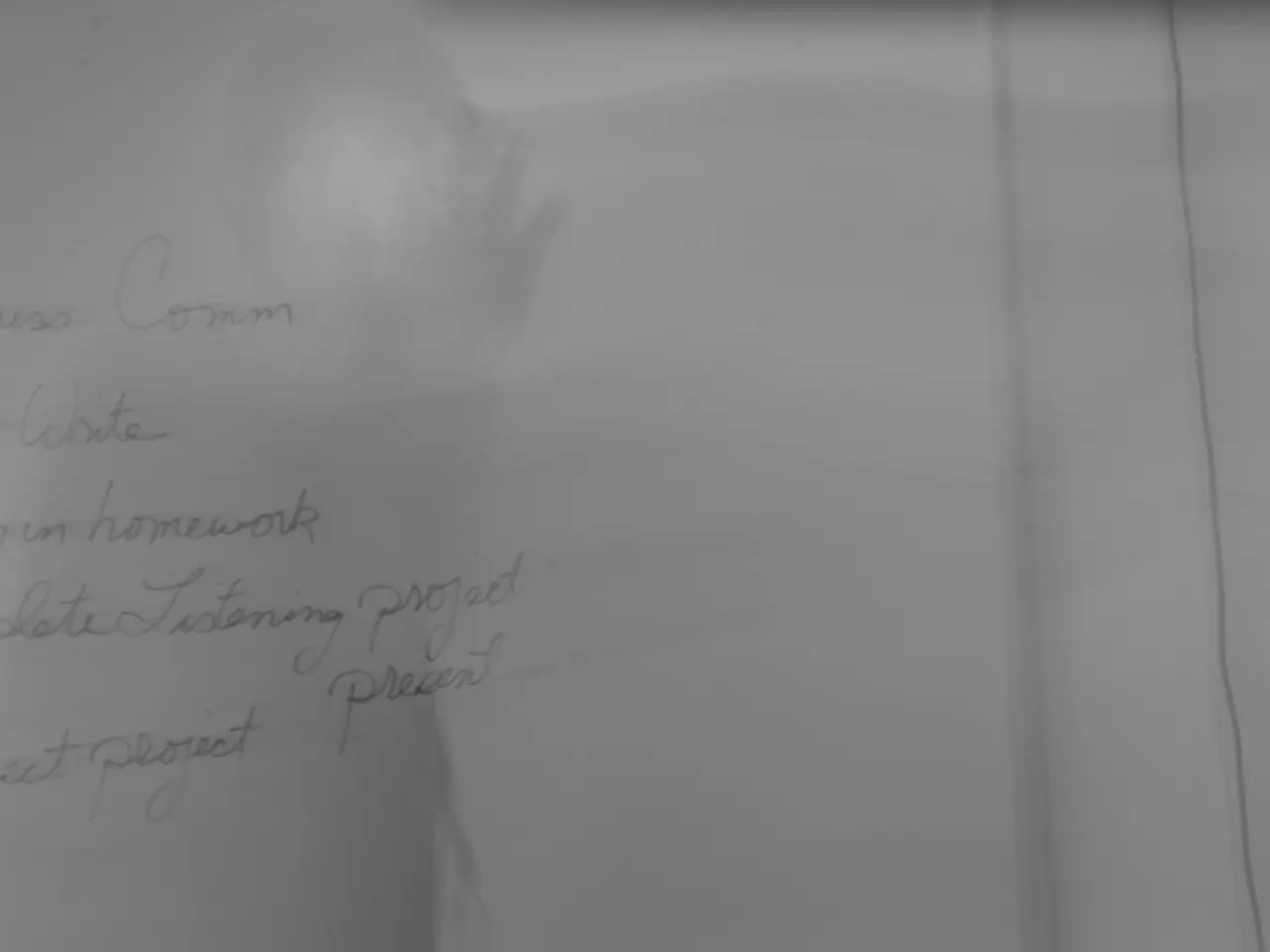Finance Minister Klingbeil's Game Plan: Wiping Out Monstrous Debt, One Strategy at a Time
Unveiling Strategy of the Finance Minister to Settle Colossal National Debts
Finance Minister Lars Klingbeil of Germany is all set to dip into the national coffers for the 2025 federal budget, tallying a whopping 850 billion euros in new debt. That's nearly equivalent to piling 120 million people onto a scale, showcasing the sheer magnitude of the monetary circumstances. Sharpen your mind's calculators, folks, because we're about to dive into the nitty-gritty on how the minister intends to liquefy this gargantuan debt.
Asked to clarify his strategy on Sandra Maischberger's show, Klingbeil puts his cards on the table. His plan revolves around three key pillars: fostering economic growth, implementing structural reforms, and, drumroll, consolidation. To further the cause, teams are supposed to be formed to brainstorm transformations in the healthcare sector and scope out areas where savings can be snagged.
Now, hold up, you might be wondering, if the German economy doesn't pick up and grow all mighty, what happens next? "Everything's subject to a financial reserve," assureth Klingbeil. He has his eyes fixed on the upward-pointing economic indicators, aware of the wild card that is Donald Trump in trade policy. "While we're not there yet, it's up to this government to flick the switches to economic growth and employment security," he adds confidently.
Have you been curious about whether the mother's pension is on its way any time soon? Maischberger duly peppered Klingbeil with the question three times, and eventually, the finance guru acknowledged: "If the financial conditions align, the mother's pension is in the cards."
Although this fiscal blueprint may not appear to be an austerity budget, saving measures are in motion. Klingbeil and his colleagues have agreed to trim personnel, reduce administrative funds, and slash funding for development assistance, adhering to the terms of the coalition agreement, as you can imagine.
As if that wasn't enough political drama, a "manifesto" penned by some SPD politicians stirred up a fuss. It alleges that certain political forces are fixated on a military confrontation strategy and colossal rearmament costs, which Klingbeil denies affixing his name to. "I don't see a contradiction with military strength and diplomacy," he reiterates.
Whew! Here's the lowdown:
- Germany is set to borrow up to 850 billion euros, with sights set on economic growth, modernization, infrastructure investments, and defense spending.
- The repayment strategy involves boosting the economy, streamlining processes, and generating increased tax revenues down the road.
- The mother's pension might get the green light, provided the financial climate aligns.
- While incoming revenue from savings measures is on the cards, cuts have been made across departments, including personnel, administrative funds, and development assistance.
- The "manifesto" calling for a military confrontation strategy was met with pushback from Klingbeil, who believes that the focus should be on diplomacy and tackling the root cause of conflict, namely Russian aggression.
Sources: ntv.de
[1] NTV.de (2023, September 28). "Finance Minister Klingbeil: Energy Prices will Drop from January." Retrieved from https://www.ntv.de/politik/Klingbeil-Zinsen-drohen-zu-steigen-wegen-Koronakrise-SPD-Finanzminister-Talk-Show-ausmaessige-Verschuldung-100.html[2] NTV.de (2023, September 16). "From Infrastructure Funding to the Mother's Pension: The Plans of the Government." Retrieved from https://www.ntv.de/politik/Klingbeil-Umstrickungswahlen-SPD-Wechselbaer-und-Finanzminister-Umverteilung-100.html[3] Reuters (2023, August 19). "German Budget Raises Spending and Debt to Fund Defense Boost and Energy Subsidies." Retrieved from https://www.reuters.com/world/europe/german-budget-raises-spending-debt-fund-defense-boost-and-energy-subsidies-2023-08-19/[4] Handelsblatt (2023, August 22). "Germany to Boost Defense Spending, But Not Necessarily by How Much." Retrieved from https://www.handelsblatt.com/politik/deutschland/verteidigungshaushalt-germanys-budget-calls-for-even-higher-growth-2023-08-22/27540478-dwfrw.html[5] Welt (2023, September 12). "SPD Ministers: Austerity Measures are a Thing of the Past." Retrieved from https://www.welt.de/politik/deutschland/plus122278294/SPD-Minister-Keine-Austerity-mehr-im-Bundeshaushalt.html
- The common foreign and security policy continues to play a significant role in Finance Minister Klingbeil's strategy, with a focus on defense spending while maintaining diplomacy and addressing the root cause of conflict, notably Russian aggression.
- Amidst the 850 billion euros debt consolidation plan, finance measures such as trimming personnel, reducing administrative funds, and slashing development assistance are part of the common financial policy, all in accordance with the coalition agreement.




